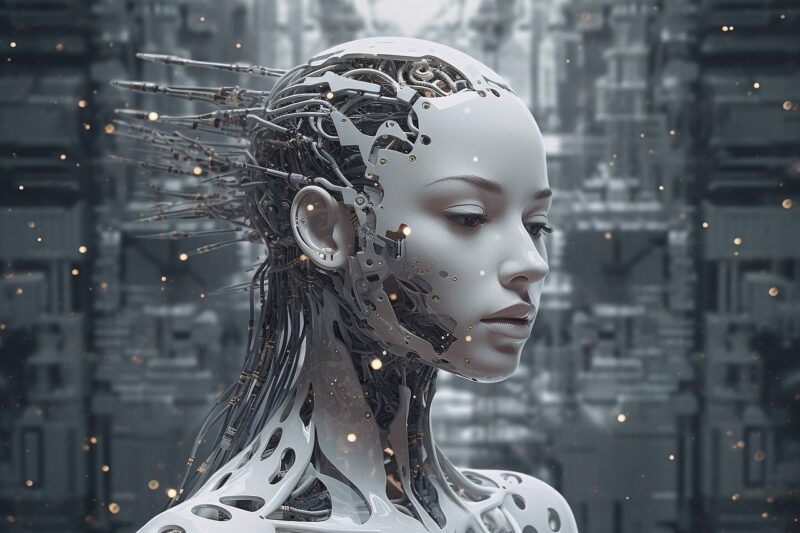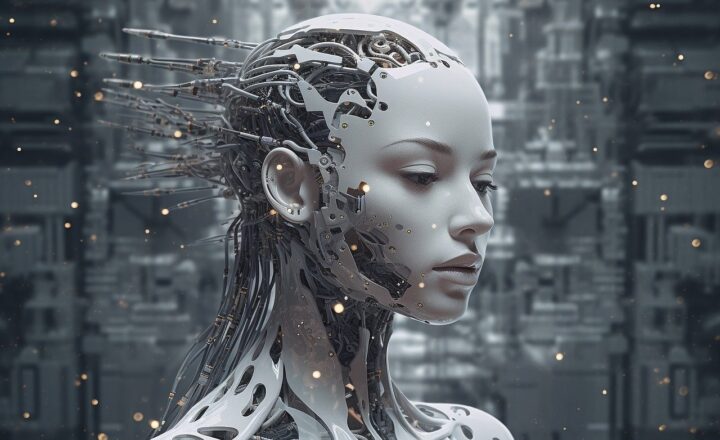Artificial Intelligence in Everyday Life: 10 Ways It’s Changing Our World
November 18, 2024

Artificial Intelligence (AI) is not just a futuristic concept found in sci-fi movies; it is an integral part of our daily lives. From the time we wake up to the time we go to bed, AI technologies are on hand to make our routines smoother and more efficient. It’s changing the way we communicate, work, shop, and even manage our health. In this article, we’ll explore ten ways AI is shaping our everyday experiences and how we can leverage its benefits.
1. Smart Home Devices
The rise of smart home devices has brought AI into our living spaces. Devices such as smart thermostats, lights, and security systems can learn from our patterns and preferences. For example, a smart thermostat like Nest adapts to your temperature preferences, helping to save energy by adjusting automatically. These devices offer convenience, comfort, and energy efficiency, transforming our homes into intelligent spaces that respond to our needs.
2. Virtual Assistants
Virtual assistants such as Siri, Alexa, and Google Assistant are now commonplace. They use AI to understand voice commands and assist with a wide variety of tasks, such as setting reminders, providing weather updates, or playing music. As they learn from user interactions, their ability to understand context and provide accurate responses improves over time. This makes our interactions with technology more intuitive and efficient.
3. Personalized Recommendations
Every time you shop online or stream music, AI is quietly working behind the scenes to personalize your experience. Platforms like Amazon and Netflix use AI algorithms to analyze your preferences and viewing habits, recommending products or shows you’re likely to enjoy. These personalized recommendations not only enhance user experience but also increase the likelihood of purchases and engagement.
4. Enhanced Customer Support
AI chatbots are revolutionizing customer service by providing instant assistance 24/7. Businesses leverage chatbots for answering common queries, booking appointments, and solving problems. Unlike traditional customer service, chatbots can learn from interactions, improving their responses and offering a seamless experience for users. This not only enhances satisfaction but also reduces operational costs for businesses.
5. Health Monitoring and Assistance
In healthcare, AI is making significant strides in diagnosis and patient monitoring. Wearable devices like smartwatches track health metrics such as heart rate and activity levels using AI to provide insights and alerts. For example, some wearables can detect irregular heartbeats, suggesting users consult a doctor if needed. AI is also being used to analyze medical images, aiding doctors in diagnosing conditions faster and more accurately.
6. Smart Transportation
AI plays a pivotal role in modern transportation solutions. From navigation apps like Google Maps that analyze traffic patterns to self-driving cars that use AI to interpret surroundings and make split-second decisions, AI is enhancing safety and efficiency on the roads. These technologies promise to reduce accidents and improve traffic management, creating smarter transportation networks.
7. Financial Management
AI is increasingly used in personal finance applications to help users make informed financial decisions. Tools like Mint and personalized robo-advisors analyze spending habits and investment opportunities, offering tailored advice for budgeting and investing. Furthermore, AI algorithms can detect unusual transactions, providing users with alerts to prevent fraud.
8. Content Creation
AI-driven tools are being employed in content creation, particularly in crafting written articles, generating reports, and even composing music. Tools like GPT-3 by OpenAI can generate human-like text based on prompts, assisting writers or marketers in crafting high-quality content. AI can also analyze trends to suggest topics that resonate with audiences, making content strategy more effective.
9. Agriculture and Farming
AI is transforming agriculture through precision farming, which leverages data analysis for better crop management. Farmers can use AI-driven systems to monitor soil health, predict weather patterns, and optimize water usage, significantly enhancing productivity and sustainability. Drones equipped with AI can conduct aerial surveys and gather crop health data, enabling proactive management and efficient resource use.
10. Improved Education Systems
AI is enhancing education by personalizing learning experiences. Adaptive learning platforms like Knewton assess students’ proficiency levels and adjust the difficulty of tasks accordingly. This tailors educational content to individual needs, making learning more effective. AI tutors can provide additional support, enabling students to grasp concepts at their own pace.
Conclusion
Artificial Intelligence is intricately woven into the fabric of our daily lives, offering unparalleled efficiency, personalization, and convenience. As technology continues to evolve, it is imperative to utilize and adapt to these innovations. By embracing AI in our personal and professional endeavors, we can harness its potential to enrich our lives and create a brighter future.
As we look forward, understanding the ethical implications and ensuring that AI is harnessed responsibly will be crucial. The goal should be not only to improve efficiency but also to enhance human experiences across all aspects of life.







